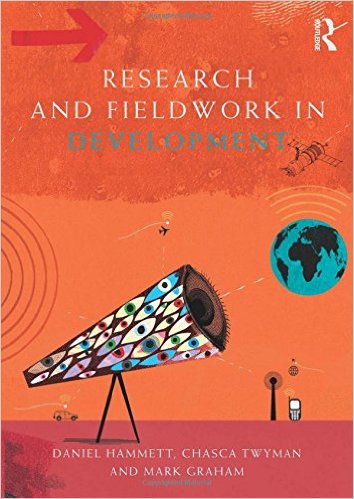
Daniel Hammett
Faculty Fellow, University of Sheffield

Research and Fieldwork in Development explores both traditional and cutting edge research methods, from interviews and ethnography to spatial data and digital methods. Each chapter provides the reader with an understanding of the theoretical basis of research methods, reflects upon their practice and outlines appropriate analysis techniques. The text also provides a cutting edge focus on the role of new media and technologies in conducting research. The final chapters return to a set of broader concerns in development research, providing a new and dynamic set of engagements with ethics and risk in fieldwork, integrating methods and engaging development research methods with knowledge exchange practices. Each chapter is supported by several case studies written by global experts within the field, documenting encounters and experiences and linking theory to practice. Each chapter is also complimented by an end of chapter summary, suggestions for further reading and websites, and questions for further reflection and practice. The text critically locates development research within the field of international development to give an accessible and comprehensive introduction to development research methods.
This book provides an invaluable overview to the practice of international development research and serves as an essential resource for undergraduate and postgraduate student embarking of development fieldwork. It is supported by online resources including extended bibliographies for each chapter, example risk and ethic forms, example policy briefing notes, research reports, links to websites and data sources.
Daniel Hammett is a Faculty Fellow at the University of Sheffield specializing in development and political geography, particularly in relation to citizenship and political protest, with a focus on sub-Saharan Africa.
Chasca Twyman is a Senior Lecturer in Geography at the University of Sheffield and Co-Director of the Sheffield Institute for International Development. Her research interests include the human dimensions of local and global environmental change, natural resource management, and governance and policy in Eastern and Southern Africa.
Mark Graham is a Senior Research Fellow at the Oxford Internet Institute, a Research Fellow at Green Templeton College and a Research Associate at the University of Oxford’s School of Geography and the Environment. He is an economic geographer with a focus on ‘knowledge economies’ in Sub-Saharan Africa.